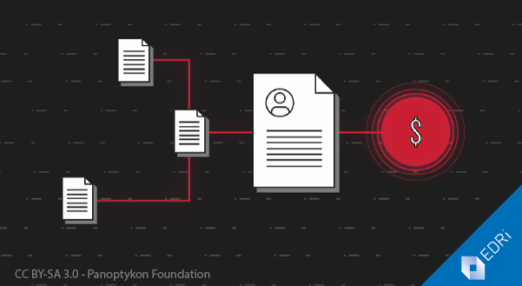Filter by...
-

Hey Google, where does the path lead?
If you do not know the directions to a certain place, you use a digital device to find your way. With our noses glued to the screen, we blindly follow the instructions of Google Maps, or its competitor. But do you know which way you are being led?
Read more
-

Google-Huawei case highlights the importance of free software
Google denies the Chinese IT giant Huawei access to Google’s proprietary components of the Android mobile operating system, which threatens IT security. This highlights the importance of free software for technology users, public bodies, and businesses.
Read more
-

Google fined 1,5 billion euro for abusive online ad practices
On 20 March, the European Commission imposed yet another massive fine, 1,5 billion euro, on Google. The Commission Directorate-General for Competition stated that the data company has abused its dominant position in the online advertising market by imposing restrictive contracts with third-party websites that prevented rivals from placing their search adverts on these websites.
Read more
-

Google and IAB: Knowingly enabling intrusive profiling
On 28 January, EDRi member Panoptykon joined a complaint against Google and the Interactive Advertising Bureau (IAB) in Poland, after it had become clear that the advertising categories provided by these entities are enabling the processing of extremely sensitive data of European citizens. On 20 February, new evidence was published proving that the IAB was […]
Read more
-

Czech BBA nominates the worst privacy intruders for the 14th time
The 14th Big Brother Awards (BBA) in the Czech Republic will take place on 14 February 2019. Awards for the biggest privacy intruders in 2018 will be announced by EDRi member Iuridicum Remedium (IuRe). The Big Brother Awards, based on a concept created by EDRi member Privacy International, are intended to draw public attention to […]
Read more
-

Panoptykon files complaints against Google and IAB
On the International Data Protection Day, 28 January 2019, EDRi member Panoptykon filed complaints against Google and the Interactive Advertising Bureau (IAB) under the General Data Protection Regulation (GDPR) to the Polish Data Protection Authority (DPA). The complaints are related to the functioning of online behavioural advertising (OBA) ecosystem.
Read more
-

Advocate General issues two Opinions on “right to be forgotten”
On 10 January 2019, the Advocate General (AG) Maciej Szpunar delivered two Opinions to the Court of Justice of the European Union (CJEU) that could have far-reaching implications for the “right to be forgotten”, which aims at enabling individuals to lead an autonomous life without stigmatisation from their past actions.
Read more
-

Complaints: Google infringes GDPR’s informed consent principle
On 27 November 2018, seven members of the European Consumer Organisation (BEUC) have launched complaints with their national Data Protection Authorities (DPAs) about Google potentially infringing the General Data Protection Regulation (GDPR).
Read more
-

Whom do we trust with the collective good?
Wittingly and unwittingly, we increasingly leave the care of society to tech companies. This trend will prove detrimental to us.
Read more
-

Anatomy of a Commission press campaign. Case study: Terrorist Content Regulation
On 12 September, the European Commission will propose a new legislative tool: the Regulation on preventing dissemination of “terrorist content”
Read more
-

Stalking is easy with Facebook, and now even easier with Snapchat
We seem to get more and more accustomed to using apps that can easily track our movements. It is convenient to simply share your location with friends, instead of sending messages or calling to arrange where to meet. But are you aware of when and how you are giving the companies an insight into our […]
Read more
-

Running an algorithmic empire: The human fabric of Facebook
Facebook, the most popular social networking platform, has undoubtedly become one of the most influential entities in our networked world. As SHARE Lab and researchers previously explained, Facebook can be seen as a huge, global factory of immaterial labour in which its users have basically one role – churn out as much personal data as […]
Read more
